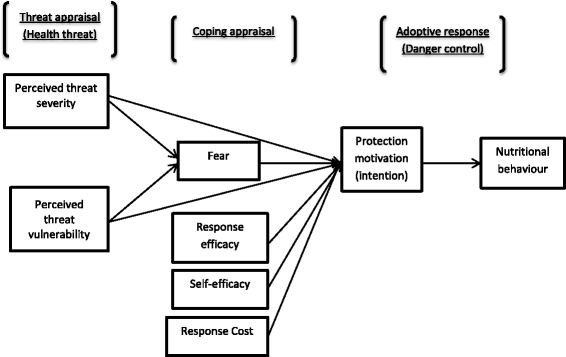"When a woman is pregnant, her grave is open": health beliefs concerning dietary practices among pregnant Kalenjin women in rural Uasin Gishu County, Kenya
- PMID: 29246186
- PMCID: PMC5732382
- DOI: 10.1186/s41043-017-0130-0
"When a woman is pregnant, her grave is open": health beliefs concerning dietary practices among pregnant Kalenjin women in rural Uasin Gishu County, Kenya
Abstract
Background: Reducing malnutrition remains a major global challenge especially in low- and middle-income countries. Lack of knowledge on the motive of nutritional behaviour could ultimately cripple nutrition intervention outcomes. The purpose of this study was to investigate how health beliefs influence nutritional behaviour intention of the pregnant Kalenjin women of rural Uasin Gishu County in Kenya. The study findings provide useful information for culturally congruent nutrition counselling and intervention.
Methods: In this qualitative study semi-structured interviews were conducted with 42 pregnant and post-natal (with children less than one year) Kalenjin women in selected rural public health facilities of Uasin Gishu County Kenya. Furthermore, key informant interviews took place with 6 traditional birth attendants who were also pregnancy herbalists, two community health workers and one nursing officer in charge of Maternal and Child Health (MCH) for triangulation and provision of in-depth information. Content analysis of interview transcripts followed a grounded theory (Protection Motivation Theory) approach, using software MAXQDA version 12.1.3.
Results: Abstracted labour (big babies and lack of maternal strength), haemorrhage (low blood), or having other diseases and complications (evil or bad food) were the major perceived health threats that influence nutritional behaviour intention of the pregnant Kalenjin women in rural Uasin Gishu County in Kenya.
Conclusion: The pregnancy nutritional behaviour and practices of the Kalenjin women in rural Uasin Gishu County act as an adaptive response to the perceived health threats, which seem to be within the agency of pregnant women. As a result, just giving antenatal nutritional counselling without addressing these key health assumptions that underlie a successful pregnancy outcome is unlikely to lead to changes in nutritional behaviour.
Keywords: Child birth; Food beliefs; Health beliefs; Kalenjin; Kenya; Maternal nutrition; Nutrition intervention; Pregnancy; Uasin Gishu County.
Conflict of interest statement
Authors’ information
Roselyter Riang’a is an Assistant Lecturer in the department of Sociology and Psychology, School of Arts and Social Studies, Moi University, Kenya. She is also a PhD candidate of Maternal Nutrition and Health in the VU University Amsterdam, Faculty of Earth and Life Sciences, Athena Institute. Prof. Dr. Jacqueline Broerse is a professor of innovation and communication at the VU University Amsterdam in the Health and Life Sciences. She is also the director of the Athena Institute, VU University, Amsterdam. Prof. Anne Nangulu is the Deputy Commission Secretary (Quality Audit and Standards) at the Commission for University Education (CUE) in Kenya and a professor of History, School of Arts and Social Studies at Moi University, Kenya.
Ethics approval and consent to participate
The authors asked for permission from the National Commission for Science, Technology and Innovation (NACOSTI) in Kenya, local authorities and the people interviewed to carry out the study.
Consent for publication
The people interviewed were informed about the study’s objectives and the eventual publication of the information gathered, and they were assured that the informants’ identities would remain undisclosed.
Competing interests
The authors declare that they have no competing interests.
Publisher’s Note
Springer Nature remains neutral with regard to jurisdictional claims in published maps and institutional affiliations.
Figures
References
-
- Unicef: Committing to Child Survival: A Promise Renewed. eSocialSciences; 2015.
-
- Republic of Kenya: National Food Policy [of Kenya]. Sessional Paper No. 4 of 1981. Nairobi: Government Printer; 1981.
Publication types
MeSH terms
LinkOut - more resources
Full Text Sources
Other Literature Sources
Medical
Research Materials


